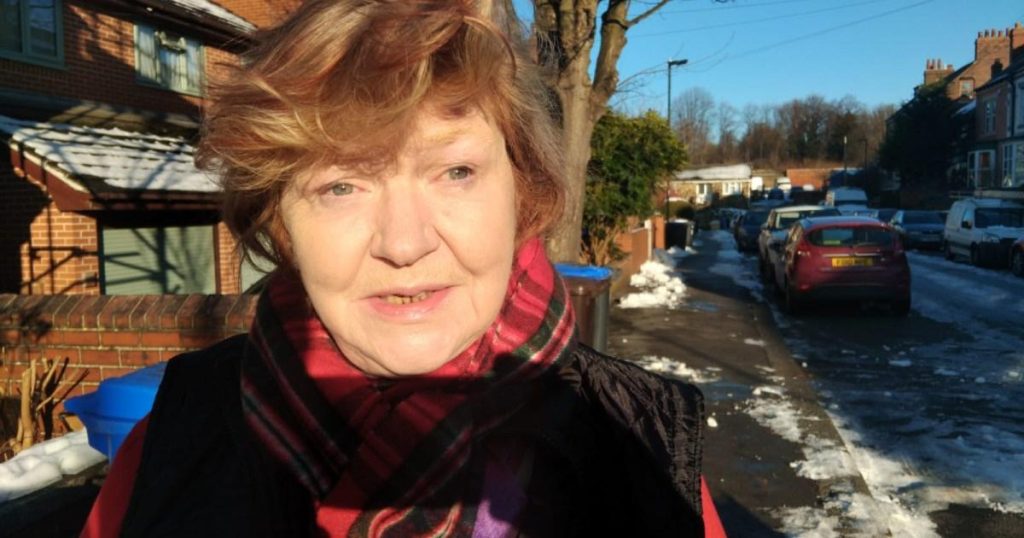Deborah Egan, a 72-year-old charity worker, faced the looming threat of eviction after her landlord abruptly doubled her rent. Residing in a three-bedroom terraced house in Sheffield for over two years, Deborah and her husband, Malcolm, were accustomed to potential incremental rent increases. However, the staggering 100% surge, from £600 to £1,200, rendered the increase untenable, forcing them to choose between essential needs like heating and food. Deborah’s initial response to the proposed increase was a request for necessary repairs, but her landlord’s retort was a Section 21 eviction notice – a “no-fault” eviction that granted them just two months to vacate the premises. This notice, delivered in July, triggered immense stress and anxiety, disrupting Deborah’s work and sleep. The prospect of finding a new home, with its associated costs like deposits and moving expenses, estimated at around £4,000, proved daunting for the low-wage charity worker. Deborah’s experience mirrors a larger housing crisis gripping England, with millions struggling to meet housing costs, forcing many to sacrifice essential expenses and live under the constant fear of eviction.
The Section 21 eviction notice sent Deborah’s mental health spiraling. The constant threat of homelessness weighed heavily on her, evoking a feeling of powerlessness and dehumanization. Although she didn’t particularly cherish the house itself, its location held immense significance, providing proximity to her daughters and grandchildren, a community she actively served and cherished. The eviction notice disrupted her life’s equilibrium, transforming her daily routine into a relentless search for affordable housing. Waking up at 5 am, consumed by anxiety, she’d scour her inbox and online property listings, a cycle that repeated throughout the day. This incessant stress exacerbated her pre-existing cardiovascular issues, elevating her blood pressure and disrupting her sleep, ultimately affecting her performance at work. The realization that she, at 72, faced potential eviction left her in a constant state of astonishment and disbelief.
The housing crisis in the UK isn’t an isolated incident; it’s a widespread phenomenon impacting millions, according to Shelter, a housing charity. Working in collaboration with HSBC UK, Shelter aims to provide immediate crisis support and long-term solutions for those at risk. Nadeem Khan, Shelter’s emergency helpline manager, paints a grim picture of the situation, highlighting the devastating impact of scarce affordable social housing and soaring private rents. Across the country, families face crippling financial pressures and heartbreaking choices, with parents losing sleep over the fear of losing their homes and being forced to relocate, disrupting their children’s lives and severing community ties.
The human cost of this crisis is vividly illustrated through the experiences shared with Shelter helpline worker Laura Meeney. She’s received calls from grown men reduced to tears, mothers contemplating suicide, and families driven to despair. One call involved a mother and her young baby, both suffering health problems due to damp and mold in their rented flat. Another featured a grieving man, overwhelmed by mortgage arrears after his wife’s death, facing the imminent loss of his home. A particularly distressing call came from a homeless mother and her children, confined to a single hostel room without cooking facilities, pushing her to the brink of suicide. These stories, according to Laura, are just the “tip of the iceberg,” underscoring the widespread suffering, the feeling of being ignored and unimportant, and the resulting depression, anxiety, and, tragically, suicidal thoughts. While her primary role is to provide housing advice, Laura understands the critical importance of empathetic listening and compassionate support.
Deborah, despite her resilience and experience, felt powerless against her landlord’s actions. Fortunately, she possessed the knowledge to seek help from Shelter and the local council’s housing office, navigating the complexities of her legal situation. However, she acknowledges that many others lack such resources, leaving them vulnerable and overwhelmed. Her ability to secure affordable housing through a family friend offered a reprieve, allowing her and Malcolm to remain in their community. Yet, Deborah feels compelled to share her experience, recognizing that countless others face similar struggles, particularly young families and single parents who may lack her knowledge and resilience.
Deborah’s story highlights the systemic issues within the UK’s housing system. She emphasizes the lack of tenant protection and the unchecked power landlords wield, leaving renters vulnerable to profit-driven decisions. The absence of consumer rights for tenants, despite rent being a significant portion of their monthly budget, further exacerbates the problem. Deborah advocates for more social and ethical private housing in the UK, recognizing the fundamental need for secure and affordable housing for all. Her willingness to speak out underscores the urgency of addressing this crisis and advocating for meaningful change to protect vulnerable tenants.


